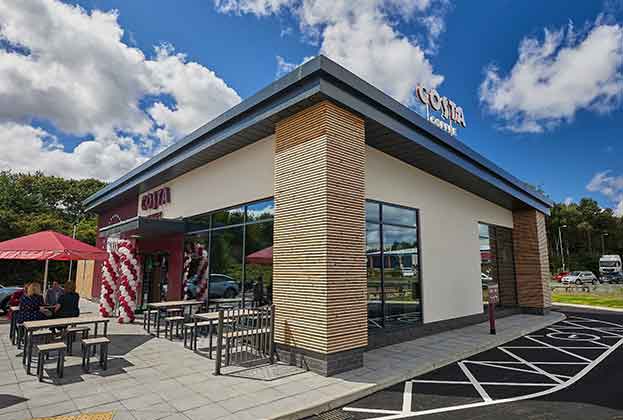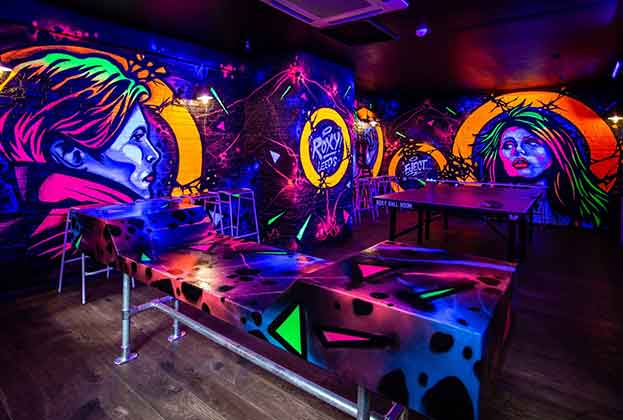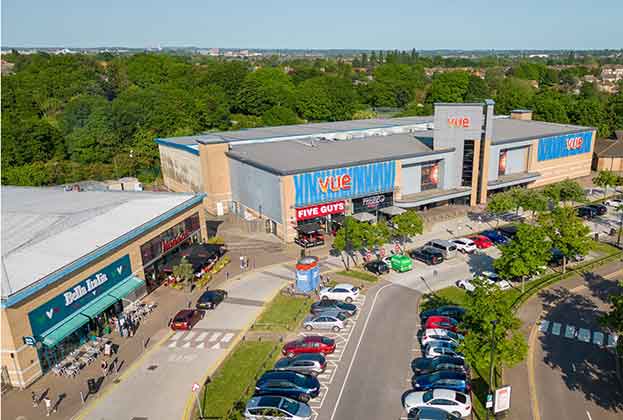Consumers are still prioritising spending on eating and drinking out, as well as at-home delivery; however, their spending patterns remain polarised
The F&B market has faced much adversity over the past few years, and 2023 did little to improve fortunes, with a number of market challenges almost universally affecting operators. These included the tightening of consumer spending in the second half of 2023 (the cost of living crisis), high cost of finance impacting expansion potential, foodservice inflation, energy cost inflation, political uncertainty, higher occupational costs and staff shortages, retention issues and wage inflation. That being said, it is certainly not all doom and gloom, and outcomes have varied significantly from brand to brand, particularly in how they have navigated these challenges – broadly down to how well they are capitalised – as well as across the various subsectors of the market.
Consumer spending patterns on F&B and leisure are polarising in a way we have not seen before
Carlene Hughes, Director, Leisure
What’s true is that consumers are still prioritising spending on eating and drinking out, as well as at-home delivery, yet driving a good profit from that spend is more challenging than ever. Consumer spending patterns on F&B and leisure are polarising in a way we have not seen before. When belts tighten, people seek ‘value’ in how they spend their money, and that doesn’t mean just cheap eats. Actually, the rise of ‘eatertainment’ and ‘experiential’ dining and drinking venues has demonstrated how the perception of value also rings true at higher price points. It is those stuck in the middle, that offer little incentive for customers to be loyal, who deliver poor service and value for money that have borne the brunt of the wider economic challenges.
As such, we can broadly categorise the trends we are seeing in the F&B market into the following subsectors, where we highlight the varying fortunes of brands:
The Fast and the Furious: QSR
Quick Service Restaurants are flourishing for the most part. The rise of franchising and new entrants (particularly from the US) has driven a flurry of activity in site acquisition and resulted in rental growth. Wingstop is an excellent example, going from zero sites to 38 in the space of five years and reporting exceptional trade. With other chicken-based entrants such as Chick-fil-A, Raising Cane’s and Wingers all looking for sites, it appears that we are about to enter the ‘chicken wars’ years in the same way as with the burgers a decade prior. However, it is not just the new entrants performing well; Greggs remains in high-growth mode, targeting a further 140–160 net openings in 2024, off the backdrop of LfL sales up 8.2% in 2023. On the flip side, Papa Johns has announced it will be shutting 50 company-owned stores, citing the cost of doing business (ingredients and materials) for the most part.
The (Un)steady Stalwarts?
The middle-market brands and ‘big chains’ have much more varied performances, in the most part down to how they are financed and their level of debt, as they grapple with generating profits for shareholders against a backdrop of the cost of living crisis. Mitchells & Butlers, one of the largest operators straddling both drink and food occasions with brands All Bar One, Miller and Carter, Toby Carvery, etc. appear to be holding their own against new challengers, reporting a strong end to the year. Equally, Azzurri Group – operators of ASK Italian, Zizzi, Coco di Mama and Boojum – reported a 9% increase in revenue to £258m in YTD 30 June 2023 and margins now back to pre-Covid levels. It is also looking to roll out Mexican QSR brand Boojum on mainland UK in 2024. On the flip side, TGI Friday’s reported flat revenue for the second half of 2023, which is a slight improvement on the previous results. After announcing it will not open any more sites until 2025, it is in money-saving mode as it grapples with financial restructuring. Meanwhile, it was all change at The Restaurant Group, as it accepted a take-over by private equity firm Apollo, alongside paying £7.5m to Big Table Group (owner of Café Rogue, Las Iguanas, Banana Tree and Bella Italia) to take on the remaining Frankie & Benny’s and Chiquito units.
The Coffee and Brunch Crowd
The UK branded coffee shop market now exceeds over 10,000 outlets and is valued at over £5.3bn, growing sales by 9.2% over the last 12 months (Project Café UK 2024). Greggs and Starbucks were responsible for 73% of the 353 new openings in 2024, and Costa has a 26% market share in the UK. Yet as the larger brands have largely succeeded, some have lost their place in the market, such as Le Pain Quotidien collapsing into administration in summer 2023, its second administration since 2020, as well as poor-quality independents and cafés. The (all-day) brunch and dining offers also prove that driving spend across all day-parts is key to success in a challenging marketplace. Loungers, now one of the largest chains, recently opened its 250th site. Loungers has been going from strength to strength by retaining an independent feel (each Lounge has its own identity) and targeting underserved, smaller markets.
The Agile Independents
Whilst consumers have largely turned away from mass mid-market brands, they have flocked towards local and small chains that deliver on authenticity, sustainability and community. Such examples include Maki & Ramen, the Scottish casual dining Japanese concept, which has expanded from the capital into Manchester and Leeds. Equally, London-based pizza brand Zia Lucia has signed its first lease outside of the capital in Reading, while northern brand Rudy’s Pizza proves that it’s not all one-way traffic, expanding into the capital with an opening in Shoreditch, with Fitzrovia to follow in early 2024. Driving loyalty through social media is often key to these brands’ success, as well as agility and fast decision-making through (mostly) organic growth.
Eat-ertainment and Experiential
The emphasis now on value and experience is undisputed, and there are plenty of success stories across the competitive socialising, premium dining and bar markets to prove this. Gaucho and Hawksmoor – premium steak brands – both reported an ‘outstanding’ 2023, with Gaucho owner Rare Restaurants reporting revenue reaching £75.3m across the 22-strong group (a further 30 sites in the pipeline) and double-digit turnover. Hawksmoor saw turnover up to £90m (2022: £73.9m) across its twelve restaurants. Both reported EBITDA margins in excess of 20%. Flight Club and Electric Shuffle owner Red Engine saw sales rise to more than £100m in 2023 across its 25 sites as it demonstrates how successful an activity-driven but drink-focussed brand appeals to consumers seeking an experience for date nights and corporate gatherings alike. LfL revenue grew by 10% and sales by 28% against 2022 figures.
Read the articles within Spotlight: UK Leisure – 2024 below.
.jpg)




